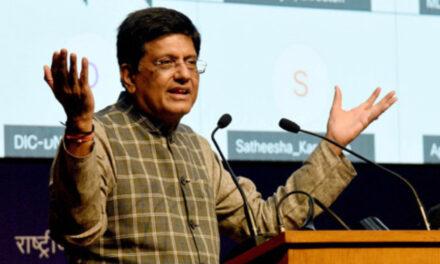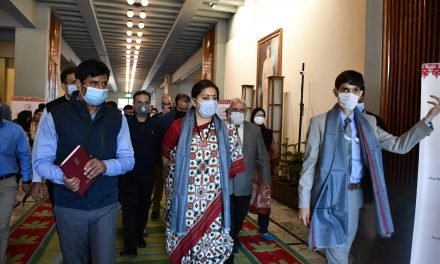 Ludhiana’s spinning industry which plays a key role in the financial and economic growth of the city and the entire region as well, is facing major crisis primarily due to duty and tax anomalies.
Ludhiana’s spinning industry which plays a key role in the financial and economic growth of the city and the entire region as well, is facing major crisis primarily due to duty and tax anomalies.
The city’s spinning industry is one of the biggest employment generators with over 1.5 lakh employees working at around 60 units and with the annual turnover of over Rs 28,000 cr.
Speaking with the Tribune, Gagan Khanna, chairman, Arisudana Spinning Mills Limited said, “under the inverted duty structure on MMF chain, raw material, including viscose and polyester staple fibre, is taxed at 18 per cent whereas the yarn is taxed at 12 per cent, which creates huge accumulation of GST refunds, leading to blockage of working capital, inability to take GST credit on capital goods, besides time-consuming and cumbersome process for taking refunds.”
“All this adds to the cost of the final product, thereby making imports more competitive against domestic products,” he reasoned while seeking reduction of GST on raw material, including viscose and polyester staple fibre to 12 per cent from the existing 18 per cent, resulting in zero revenue loss to the government.
Highlighting another anomaly affecting the industry, Khanna said that the polyester staple fibre was not included in the ASEAN FTA and thereby imported at fully duty rate of 5.5 per cent whereas the polyester spun yarn was included in the FTA and was cleared at zero duty.
“It gives no chance for domestic producers to compete with the finished goods,” the leading industrialist said while suggesting removal of polyester spun yarn from the ASEAN FTA or alternatively addition of polyester staple fibre in the FTA.
Kamal Oswal, Vice-Chairman, Nahar Group, said since October 2021, the government had levied 11 per cent import duty on imports of raw cotton, which had made the entire Indian cotton spinning industry unviable.
“As over 50 per cent of the cotton grown in the country is exported in yarn, fabric or apparel form, this chain was viable only till Indian cotton was available at fair prices, which is around 3 to 4 per cent lower than ICE futures price, as Indian cotton has higher trash, short fibre and contamination,” he said.
Oswal said since the introduction of this duty, the domestic prices were on average higher than ICE future prices by 10 per cent, which had led to huge decline in exports, resulting in closing of spinning mills leading to loss of employment and export revenue.
Seeking removal of 11 per cent import duty on raw cotton introduced in October 2021, the industrialists said the BIS standard on polyester spun yarn (IS 17265) had been repeatedly postponed and the next date for the implementation of the same has been fixed as October 5.
The leading industrialists have reached out to Rajya Sabha MP from Ludhiana Sanjeev Arora to take up their issues with the government and help their resolution to sustain the existing industry and attract more fresh investment in the textile sector.





















